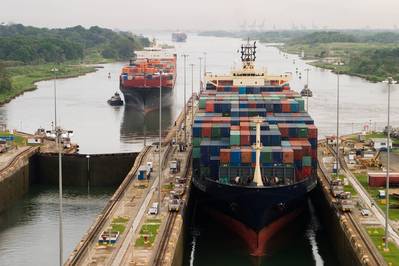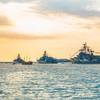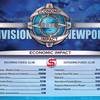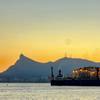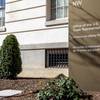Senators Weigh In on Panama Canal Concerns
A bipartisan group of U.S. senators on Tuesday expressed alarm at China's influence on the Panama Canal, which President Donald Trump has vowed the United States would take back.
"Chinese companies are building a bridge across the canal – at a slow pace so as to take nearly a decade – and control container ports at either end," Senate Commerce Committee chair Ted Cruz said at a hearing on the canal's role in U.S. trade and national security.
"The partially-completed bridge gives China the ability to block the canal without warning, and the ports give China ready observation posts to time that action. This situation poses acute risks to U.S. national security," he added.
More than 40% of U.S. container traffic, valued at roughly $270 billion annually, transits the Panama Canal, making up over two-thirds of vessels passing each day through the world's second-busiest interoceanic waterway.
Federal Maritime Commission Chair Louis Sola said the agency "will continue to monitor the canal's pricing practices and consider broad reviews of Panama's maritime sector," and can impose fines and restrictions on Panamanian-flag vessels entering U.S. ports.
Panama has one of the world's largest registries for vessels, giving its flag to more than 8,000 ships.
Senator Maria Cantwell, the top Democrat on the committee, said the U.S. and Panama should work "together to boost port and Canal infrastructure to lower costs and ensure reliability of the Canal."
She asked for a classified briefing for the committee on foreign adversary threats to the canal and plans to take a group of senators to the canal later this year. "I am concerned about the Chinese-owned ports in Panama and their proximity to the Canal," Cantwell said.
Trump has given no details on when or how he intends to reclaim the canal, which is the sovereign territory of an ally. He has refused to rule out use of military force, drawing criticism from Washington's Latin American friends and foes alike.
George Mason University law professor Eugene Kontorovich told the hearing a neutrality treaty signed when the U.S. transferred the canal to Panama gives both sides "the right to resort to use armed force" to enforce provisions. However, "armed force should never be the first recourse for any kind of international dispute," he added.
Panama's president, Jose Raul Mulino, said last week that Panama has administered the canal responsibly for world trade, including for the U.S., and that it "is and will continue to be Panamanian."
Why is Trump threatening to take over the Panama Canal?
Trump argues that Panama has broken a pledge of neutrality made when the United States transferred the canal to Panama in 1999, falsely claiming that China is operating it.
The canal is operated by the Panama Canal Authority, an autonomous agency overseen by the Panamanian government.
WHY IS THE CANAL KEY FOR THE U.S?
The Panama Canal is an 82-km (51-mile) artificial waterway that connects the Pacific and Atlantic Oceans, and key to global trade flows. It saves ships thousands of miles and weeks of travel. Before it was built, ships had to make the long journey around the stormy tip of South America in order to travel by sea between the two oceans.
Over two-thirds of all cargo passing through the canal today originates from or is destined for the United States.
The U.S. completed construction of the canal in the early 20th century, a project begun by France that claimed the lives of over 25,000 workers.
Following pressure from anti-colonial movements, the U.S. signed treaties in 1977 granting Panama control and sovereignty over the canal zone and guaranteeing its permanent neutrality. These took effect in 1999.
An amendment to one of the treaties indicates that the "correct interpretation" of the treaty obligations mandates that Panama and the United States must "defend the canal against any threat to the regime of neutrality."
Permitted action under the treaty includes taking "unilateral" actions to defend the canal against any threat as defined by either nation, according to the 48-year-old accord.
But the treaty's language also prohibits some U.S. actions.
"This does not mean, nor shall it be interpreted as, a right of intervention of the United States in the internal affairs of Panama," according to the text, adding that any U.S. action must ensure that the waterway remains "open, secure and accessible."
Over the past couple years, a severe drought aggravated by climate change lowered water levels at lakes feeding the canal, forcing restrictions on transits and vessel drafts, raising costs and waiting times.
The passage restrictions were lifted late last year, but the waterway has not yet seen normal traffic return as many shippers, especially bulk carriers and liquefied natural gas tankers, have continued taking alternative routes.
WHAT IS CHINA'S INVOLVEMENT?
In his inaugural address, Trump repeated claims that Panama has ceded control of the canal to China. He has also said Chinese troops are stationed at the canal, without providing evidence.
Both Panama's government and the Chinese government reject those assertions.
CK Hutchison Holdings, a Hong Kong-based company, has for more than two decades operated the ports of Balboa and Cristobal at the canal's Pacific and Atlantic entrances. The publicly listed company is not financially tied to the Chinese government, though Hong Kong firms are subject to state oversight.
Other ports are operated by firms from the U.S., Taiwan and Singapore.
China's economic influence has been growing in Latin America, fueling worries in Washington that the resource-rich region will tilt to Chinese interests rather than those of the United States.
Panamanian President Jose Raul Mulino has asserted that the canal is and will continue to be Panamanian.
Panama's authorities recently announced an audit on CK Hutchison's operated ports, saying they are investigating the firm's compliance with concession agreements.
CK Hutchison's local arm did not respond to a Reuters request for comment, but said in a statement it has paid the state hundreds of millions of dollars during its concession and that its labor force is 99.9% Panamanian.
DISPUTE OVER TOLLS
Trump has repeatedly complained that the fees charged to ships to use the canal are too high, and has accused Panama of levying unfair tariffs on U.S. goods.
"American ships are being severely overcharged and not treated fairly in any way and that includes the United States Navy," Trump said in the address.
Between the fiscal years ended in 2020 and 2023, the canal's toll revenue increased almost 26% to $3.35 billion. In the fiscal year ended last September, the canal offset less vessel traffic with a water surcharge, which it combined with slot auctions that rose to as much as $4 million per vessel.
The canal's fees are not differentiated by a ship's flag, country of origin, or destination. The United States does not have a relevant commercial fleet under its flag, and U.S. military ships enjoy priority passage.
Mulino said the tariffs are carefully and transparently evaluated according to demand.
Shipping experts and cargo movers say tolling fee increases have been applied in recent years by other key waterways amid demand spikes and geopolitical conflicts.
WHAT'S NEXT
Trump's threat is already impacting Panama's debt rating. U.S. investment bank JPMorgan downgraded its recommendation on the country's bonds over threats to the canal, a key source of national income.
U.S. Secretary of State Marco Rubio is scheduled to visit Panama in the coming days in his first foreign trip since taking the post. Immigration will be a focus of the trip.
Mulino, who took office last year, has taken a harder line on migration than his predecessor, agreeing to U.S.-funded deportation flights from Panama and installing barbed wire at the Darien Gap, a dangerous jungle route many migrants traverse from South America on their way to the U.S. border.
(Reuters - Reporting by David Shepardson and Marianna Parraga; Editing by Sonali Paul) (Extra reporting by Sarah Morland and Alejandra Ceballos in Mexico City, Marianna Parraga in Houston and Elida Moreno in Panama City; Editing by Rosalba O'Brien and Stephen Coates)



